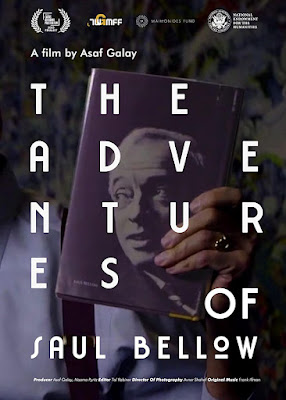For those who say conservatives aren’t artistically inclined, try to explain away Saul Bellow, the Nobel Laureate and arguably the great American novelist. Seventeen years after his death, Bellow far outshines his contemporaries (seriously, who reads Norman Mailer anymore?) and remains culturally relevant. Asaf Galay chronicles Bellow’s life through his novels and marriages in The Adventures of Saul Bellow, which airs Monday as part of the current season of American Masters.
Galay suggests Bellow embraced his identity as an “American writer” and a “Chicago writer” more than his status as a “Jewish writer,” but that aspect of Bellow is surely a discernable influence on his writing too. Many of his books incorporated autobiographical elements, as well as the lives of his literary and academic colleagues. Perhaps the most notorious example was his final novel Ravelstein, which outed the homosexuality of his life-long friend, Allan Bloom, the author of The Closing of the American Mind.
Throughout the film, we hear from Bellow’s nephew, two sons, his widow, and the ex-wife who preceded her, all of whom talk about their family dynamics in very matter-of-fact terms. They are all mature adults, which makes them refreshing to hear from in a documentary. There are also critical voices too, including novelist Charles Johnson, who admits an alternative reading might have validity when Galay challenges him.
As a result, Adventure is one of the smartest and most judiciously balanced literary docs produced in years. It offers a comprehensive introduction to Bellow’s themes and criticisms, while also inviting new “socially conscious” perspectives on his work, particularly The Dean’s December, his inner-city novel.
You can definitely get a sense of Bellow’s literary significance from Galay’s on-camera commentators, including Martin Amis, Stanley Crouch, Sir Salman Rushdie (obviously recorded before the Chautauqua attack), and Philip Roth. As a point of comparison, Galay’s film is much livelier and more deeply probing than American Masters’ Roth profile, Philip Roth: Unmasked, which was a little too much like a chatty author lecture. (Galay skips over Bellow’s appearance, as himself, in Woody Allen’s Zelig, but it is easy to understand why he might try to avoid the apoplexy the canceled filmmaker inspires.)
Most importantly, Galay does a nice job exploring and showcasing Bellow’s work. Time and again, he and his talking heads go back to the author’s words, where they find meaning and/or compelling prose. Highly recommended, The Adventures of Saul Bellow airs Monday night (12/12) on PBS.

